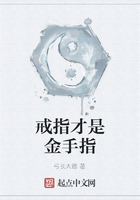For the next hour and a half the Rev. George Holland had an opportunity of considering his position as a clergyman of the Church of England, and as one whose chief desire was to advance the interests of the Church. His bishop had assumed that he had been single-minded in his aims--that his sole object in writing that book and that paper had been to cure the complaint from which the old Church was suffering. His lordship had done him justice where Phyllis had done him a gross injustice. What would Phyllis have said he wondered, if she had heard that concession, made not under pressure, but voluntarily by probably the highest authority in the world, to his, George Holland's, singleness of aim?
But it was so like a girl to jump at conclusions--to assume that he had been actuated by vanity in all that he had just done; that he was desirous only of getting people to talk about him--being regardless whether they spoke well of him or ill. He only wished that she could have heard the bishop. He felt as a man feels whose character has just been cleared in a court of law from an aspersion that has rested on it for some time. He wondered if that truly noble man whom he was privileged to call his Father in God, would have any objection to give him a testimonial to the effect that in his opinion,--the opinion of his Father in God,--there was no foundation for the accusation against him and his singleness of aim.
But the bishop knew that it was not vanity which had urged him to write what he had written. The bishop understood men.
He was right; the bishop understood men so well as to be able to produce in a few words upon the man who had just visited the palace, the impression that he believed that that man had been impelled by a strong sense of duty without a touch of vanity. He understood man so well as to cause that same visitor of his to make a resolution never again to publish anything in the same strain as the /Zeit Geist/ article, without first consulting with the bishop. George Holland had pulled the bell at the palace gates with the hand of a Luther; but he had left the presence of the bishop with the step of a Francis of Assisi. He felt that anyone who would voluntarily give pain to so gentle a man as the bishop could only be a brute. He even felt that the bishop had shown himself to be his, George Holland's superior in judgment and in the methods which he employed. The bishop was not an overrated man.
For a full hour in the silence and solitude of the reading room of his club he reflected upon the excellence of the bishop, and it was with a sign of regret that he rose to keep his other appointment. He would have liked to continue for another hour or two doing justice to that good man out of whose presence he had come.
Mr. Linton's office was not quite in the City. Twenty minutes drive brought George Holland into the private room of Ella Linton's husband.
"It is very good of you to come to me, Mr. Holland," said Stephen.
"There seems to be a general idea that a clergyman should be at the beck and call of everyone who has a whim to--what do they call it in Ireland--to make his soul? That has never been my opinion; I have never given any trouble to a clergyman since I was at school."
"It is the privilege of a minister to be a servant," said the Rev.
George Holland.
"We were taught that at school--in connection with the Latin verb /ministro/," said Mr. Linton. "Well, Mr. Holland, I am glad that you take such a view of your calling, for I am anxious that you should do me a great service."
He paused.
George Holland bent his head. He wondered if Mr. Linton wished to intrust him with the duty of observing his wife.
"The fact is, Mr. Holland," resumed Stephen Linton, "I have read your book and your paper in that review. The way you deal with a difficult question has filled me with admiration. You will, I need scarcely say, be outside the Church before long."
"I cannot allow you to assume that, Mr. Linton," said George gravely.
"I should be sorry to leave the Church. I cannot see that my leaving it is the logical sequence of anything that I have yet written. My aim is, as doubtless you have perceived, to bring about such reasonable and, after all, not radical changes in the Church system as shall make her in the future a more potent agency for good than she has ever yet been, splendid though her services to humanity have been."
"Still you will find yourself outside the walls of your Church, Mr. Holland. And you will probably adopt the course which other sons of the Church have thought necessary to pursue when the stubborn old thing refused to be reformed."
"If you suggest that I shall become a Dissenter, Mr. Linton--"
"I suggest nothing of the sort, though you dissent already from a good many of the fundamental practices of the Church, if I may be permitted the expression. Now, I should like to make a provision for your future, Mr. Holland."
"My dear sir, such a proposition seems to me to be a most extraordinary one. I hope you will not think me rude in saying so much. I have not suggested, Mr. Linton, as other clergymen might, that you mean an affront to me, but I don't think that anything would be gained by prolonging--"
"Permit me to continue, and perhaps you may get a glimmer of gain. Mr. Holland, I am what people usually term a doomed man. So far as I can gather I have only about six months longer to live."
"Merciful Heaven!"
"Perhaps it is merciful on the part of Heaven to destroy a man when he has reached the age of forty. We'll not go into that question just now. I was warned by a doctor two years ago that I had not long to live. It appears that my heart was never really a heart--that is to say, it may have had its affections, its emotions, its passions, but pneumatically it is a failure; it was never a blood-pump. Six months ago I was examined by the greatest authority in Europe, and he pronounced my doom. Three days ago I went to the leading specialist in London, and he told me I might with care live six months longer."
"My dear Mr. Linton, with what words can I express to you my deep feeling for you?"















